
Humanity is facing a major challenge with the coronavirus crisis. It is estimated that millions of people might die worldwide. Beyond those who will die, scientists predict there will be many more millions of sick people who will not be productive for some time, until they recuperate.
This prediction is based on the estimate that between 50 to 70% of the population will get sick, out of which 80% will have a mild flu-like sickness, 17% will be very sick and hospitalized but will recover, and only 3% will die. They will be those with compromised health and the old.
One does not have to be a rocket scientist to realize that 20% of the population of any country going to hospital will lead to the collapse of the health delivery system, and it will be a challenge to bury or cremate 3% of the country’s population.
But that’s not all.
With 80% sick, 17% feeling like they will die any minute, and 3% actually dying, it will cause a major reduction in active customers and, thus, consumption. When people experience fear, they are not inclined to separate themselves from their cash. Furthermore, people sheltering at home to avoid getting sick will lead to a stoppage in factory production and delivery from logistics companies. As revenues shrink, companies are going to fire part of their workforce, and all these changes cumulatively will cause the health crisis to result in an economic crisis, heading to recession and predictably depression. Ah, not necessarily so, some might say. The government and the central bank will pump cash into the market to stimulate the economy, as they have done in the US in trillions of dollars.
Denne historien er fra May 2020-utgaven av Heartfulness eMagazine.
Start din 7-dagers gratis prøveperiode på Magzter GOLD for å få tilgang til tusenvis av utvalgte premiumhistorier og 9000+ magasiner og aviser.
Allerede abonnent ? Logg på
Denne historien er fra May 2020-utgaven av Heartfulness eMagazine.
Start din 7-dagers gratis prøveperiode på Magzter GOLD for å få tilgang til tusenvis av utvalgte premiumhistorier og 9000+ magasiner og aviser.
Allerede abonnent? Logg på
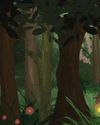
A Flower from THE HEAVENS
November 14 is Children's Day. This year, SARA BUBBER brings to you a world of forests, magical flowers, festivals, and some animals you may have never seen.
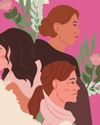
Meeting Phenomenal Women
The author, CHITRA BANERJEE DIVAKARUNI, is interviewed here by TARA KHANDELWAL and MICHELLE D'COSTA about her books on mythology, like The Palace of Illusions, which is a retelling of the Mahabharata from Draupadi's point of view, and The Forest of Enchantments, which is a retelling of the Ramayana, from the eyes of Sita. And there's The Last Queen, which is about Rani Jindan's life.
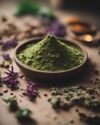
HERBAL TOOTH POWDERS: Rediscovering Ayurveda's Natural Secrets
SRAVAN BANDA presents a natural herbal tooth powder, offering a holistic approach to oral hygiene, harnessing the power of medicinal herbs.

The Dance of Light and Shadow Lessons from the Dolomites
ALAIN DESVIGNE explores the Dolomites, listed as a UNESCO World Heritage Site in 2009.
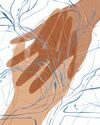
FINDING OUR WAY
A Polynesian Explorer's Journey of Discovery
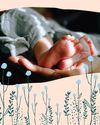
The First Imprint: Understanding PTSD
CHRISTIANNA DEICHMANN is the Director of Education at the Association for Pre and Perinatal Psychology and Health (APPPAH), where she educates both professionals and parents on fostering the most nurturing environments for welcoming new life into the world.
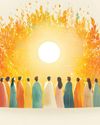
The Tipping Point
In this final conversation of the series, J. FREDERICK ARMENT continues to talk with CHRISTINE JONES about promoting peace in the world.
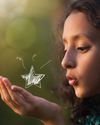
UNLOCK YOUR POTENTIAL
Take The Brighter Minds Path To Cognitive Development

The Intrinsic Goodness of the Heart
DAAJI shares some thoughts on heartfelt acceptance and all it has to offer. He says, \"It is the heart's intrinsic goodness that allows us to accept everything as part of us.
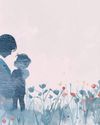
How Does Fear Affect Our Roles as Mothers? - Neelam Shivhare explores some of the great ancient texts of India on motherhood, compares the behavior of Kaikayi and Yashoda
Neelam Shivhare explores some of the great ancient texts of India on motherhood, compares the behavior of Kaikayi and Yashoda, and realizes the importance of removing fear from our hearts in order to nurture our children.For young women like myself, who are future mothers, I trust we are on the path of becoming selfaware and brutally honest with ourselves. We are creative beings, never forgetting the gifts with which we have been bestowed— the love and tenderness, natural instincts, and intuition to feel the right path. It all lies in the mysterious meanderings of the heart. Are we really listening to our hearts, or confusing the bombarding information on social media with reality?